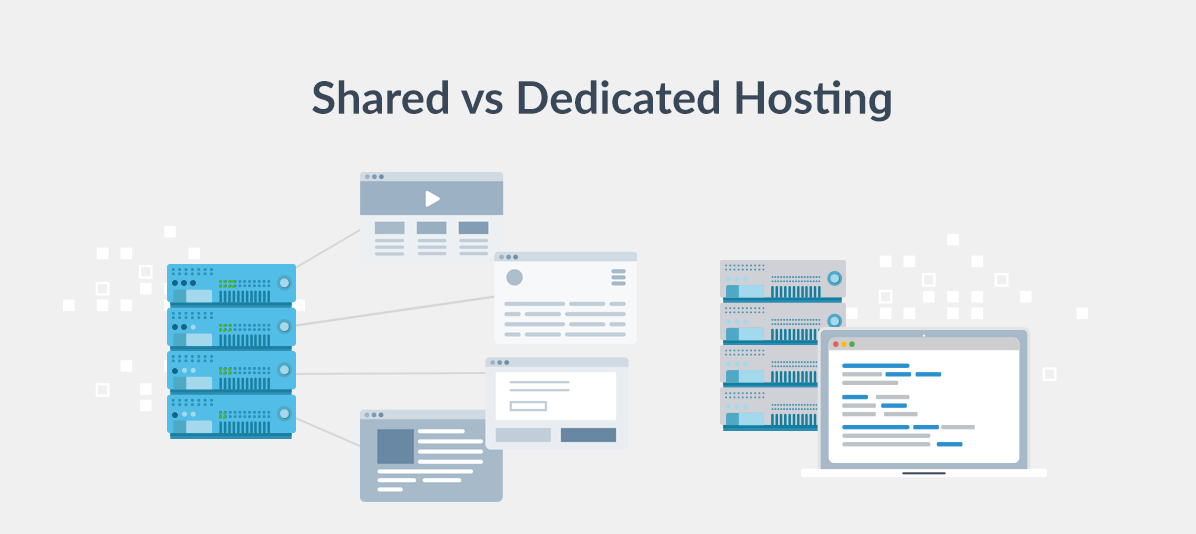The web hosting services market is a highly competitive one. In fact, it's not unheard of for longtime hosting providers to disappear overnight — often, due to poor customer support (web hosts have been known to disappear without explanation or notice). Fortunately, the web hosting industry has matured dramatically in recent years, with most major players offering unprecedented uptime and reliability.
Having a website for your business is an important step in reaching potential customers, but there are many challenging decisions to make when it comes to hosting.
In this article, we will uncover the contrast between dedicated hosting and shared hosting services to help you determine which one is right for your business. We'll explain what each type of hosting means, review each of their features, and look at their pros and cons so you can make the best choice for your individual needs.
Introduction: Uncovering the Contrast - Comparing Dedicated Hosting to Shared Hosting
The need for a website to represent your business is increasingly important in the modern digital age. As such, choosing the right hosting service is essential to ensure that potential customers can access and view your website easily and quickly.
When it comes to hosting a website, there are two primary choices: Dedicated Hosting or Shared Hosting. Both of these options provide distinct benefits and drawbacks, so it's important for website owners to carefully consider their preferences and requirements before making a decision.
In this article, we'll uncover the contrast between dedicated hosting and shared hosting services to help you make an informed decision about which type of hosting is most suitable for your individual needs.
We will review their features, discuss their pros and cons, as well as provide an overview of what each type of hosting means so that you can make the best choice for your business.
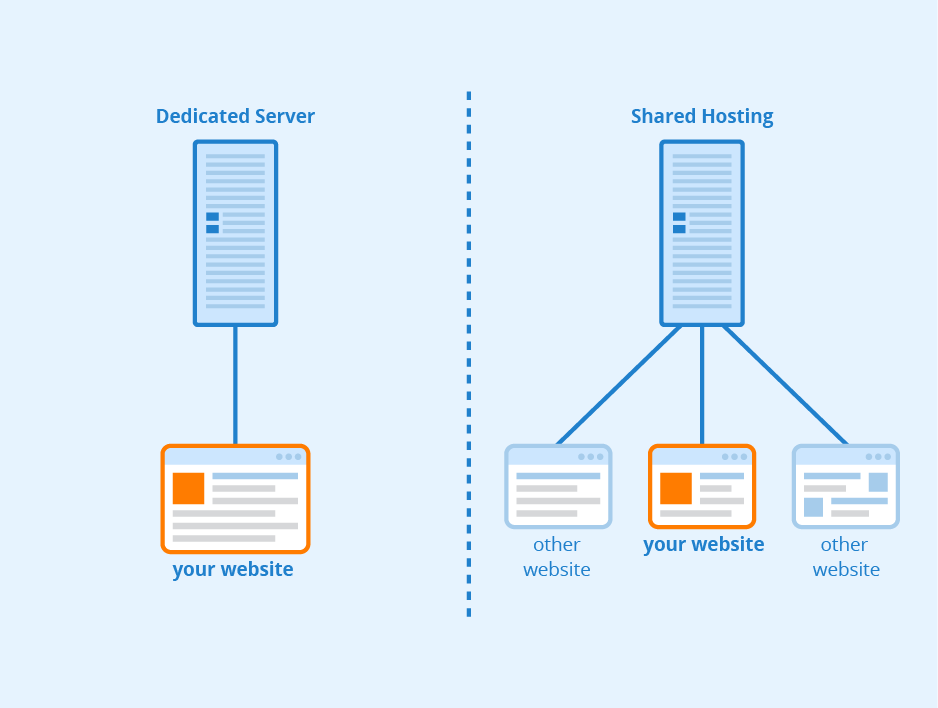
What is Dedicated Hosting?
Dedicated Hosting is a type of web hosting where the user has exclusive access to an entire server. With this type of service, the user does not need to share resources with other websites or customers.
This allows for more control over the server and its performance, as well as greater flexibility when it comes to customizing applications and software such as installing specific plugins or modules.
Dedicated hosting also offers higher levels of security since there are no other sites on the same server that could be affected by malicious attacks or vulnerabilities.
Additionally, dedicated servers provide improved scalability which means that you can easily upgrade your website’s bandwidth and storage capacity if needed in order to accommodate increased traffic or large data files.
Dedicated hosting is an excellent choice for those who need great service, prefer a high level of customization and control, or want to avoid overloading their servers with heavy traffic.
Dedicated hosting has only one purpose, but it does its job incredibly well. Hosts can allocate resources how they choose and usually have full access to the server machine as long as they pay their monthly fees.
While it's more expensive than shared hosting and often comes with software restrictions, dedicated hosting gives you:
- full control over your server environment in order to improve performance
- boost security
- develop strong relationships with customers.
Dedicated hosting is the most powerful type of web hosting. It's well-suited to large sites with huge user volumes, or to e-commerce empires that need maximum uptime and scalability.
Dedicated hosting empowers businesses and website owners, giving them ultimate control over their technology stack and performance. In contrast, shared hosting is a compromise between
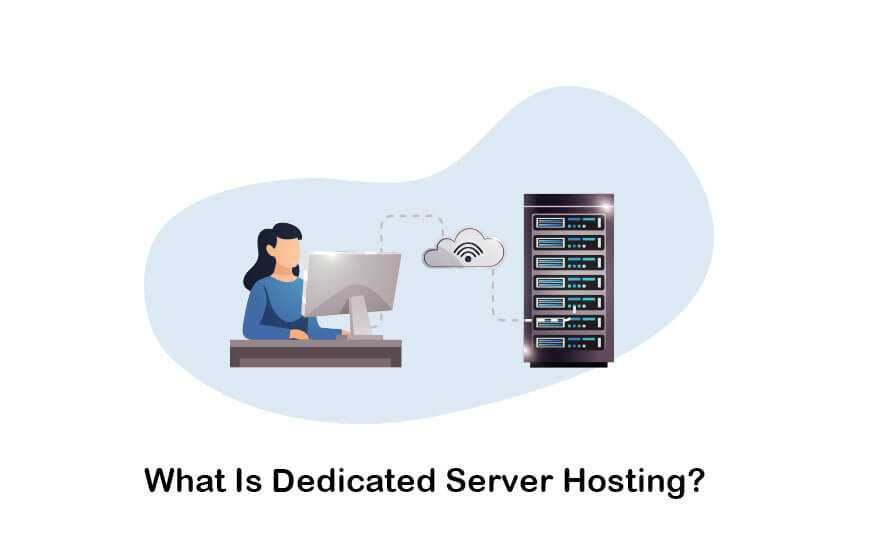
What is Shared Hosting?
Shared hosting is a type of web hosting where the resources of a single server are shared among multiple websites or customers. This allows for more affordable pricing since you are only paying for a portion of the total cost associated with running and maintaining the server.
Shared hosting also offers easy setup and installation, allowing users to quickly get their website up and running without needing extensive technical knowledge.
Additionally, many providers include additional features such as domain registration, email accounts, data backups, and more which can further improve the user experience.
However, due to its nature as a shared resource there may be certain limitations in terms of performance and customization options compared to dedicated hosting services. It is important to assess your individual needs before making any decisions about which type of hosting service best suits your business requirements.
Shared hosting is a type of web-hosting where multiple websites are hosted on the same physical server and share its resources. This means that your website's performance can be affected by the traffic and resource usage of other websites on the same server. Shared hosting is generally the most affordable option for hosting a website and is suitable for small to medium-sized websites with low to moderate traffic.
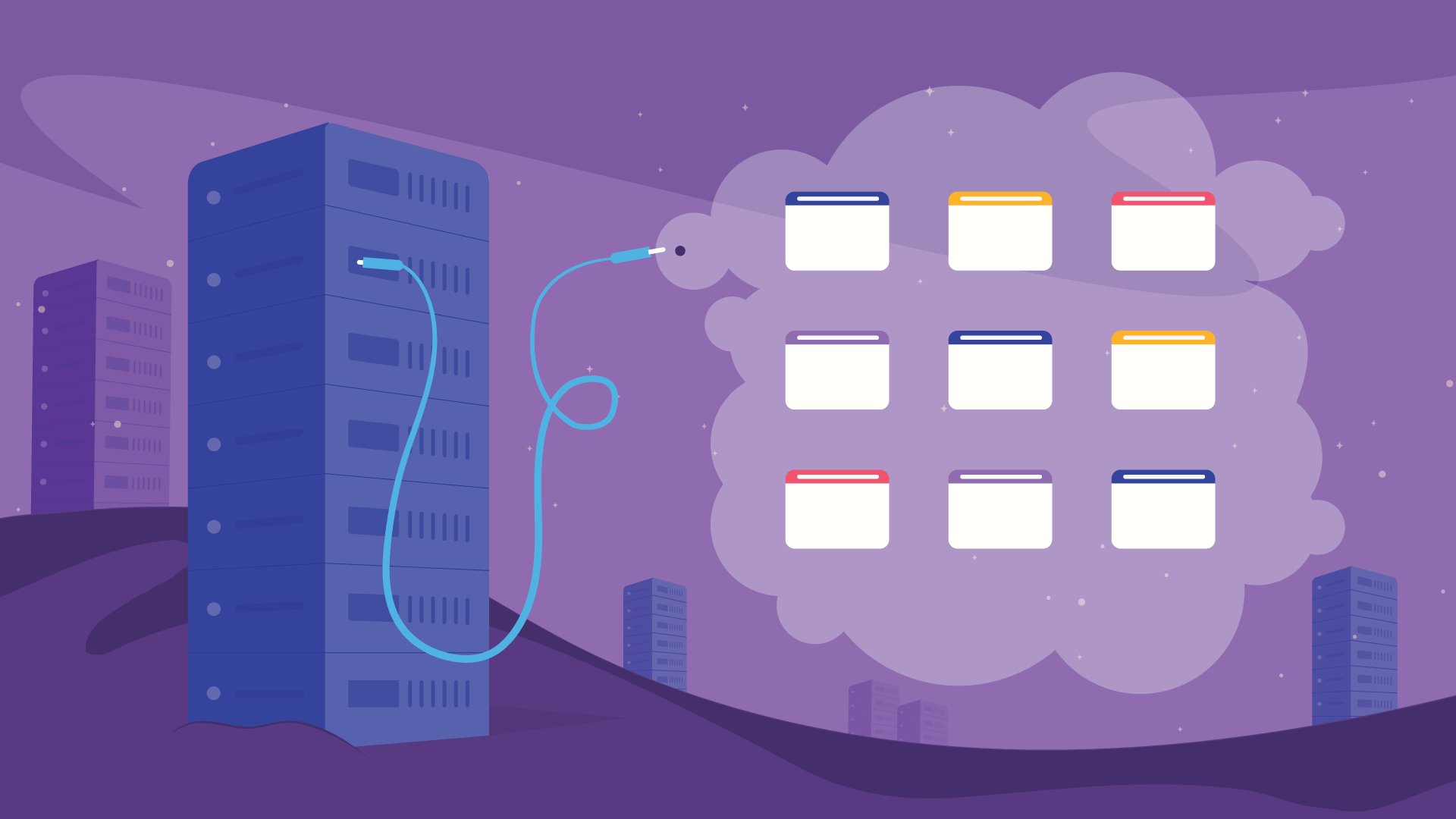
The Difference: Pros and Cons
The difference between dedicated hosting and shared hosting lies in the amount of control and resources that are available to the user.
With dedicated hosting, users have exclusive access to an entire server which provides more control over performance, customization options, scalability, and security. However, this type of service can be expensive since you need to cover all costs associated with running and maintaining your own server.
On the other hand, shared hosting services provide lower pricing since multiple websites or customers share a single server’s resources. This allows for easy setup and installation as well as additional features such as domain registration or email accounts from many providers; however there may be certain limitations in terms of performance compared to dedicated servers. It is important to assess your individual needs before making any decisions about which type of hosting is best suited for your business requirements.
Flexibility
By choosing Shared Hosting, you will get everything you need to run your website smoothly. Since all sites share the same server (and therefore the same back-end), there is no room for customization and individualization of your site. Most shared hosts will give you a few additional features — like more FTP users or additional cloud storage — but that's the extent of their personalization.
Your dedicated server is completely customized to your needs. When you rent a server, you can choose the operating system, configure the environment to run specific applications, and optimize the amount of bandwidth and memory you need. When your site gets large enough, you may want to rent another server to handle the increased traffic and load.
Security
Shared hosting plans are, by their very nature, an insecure option for any website. A shared plan allows sharing between multiple users, which opens up possible security breaches — load time distribution can be uneven and slow other users' sites on the server. Dedicated servers ensure speed, uptime, and security — and are therefore a much better option for businesses.
Unless, of course, you get a dedicated server. Dedicated servers aren't as susceptible to breaches because there is only one user who has access to the server, and that's you — the owner!
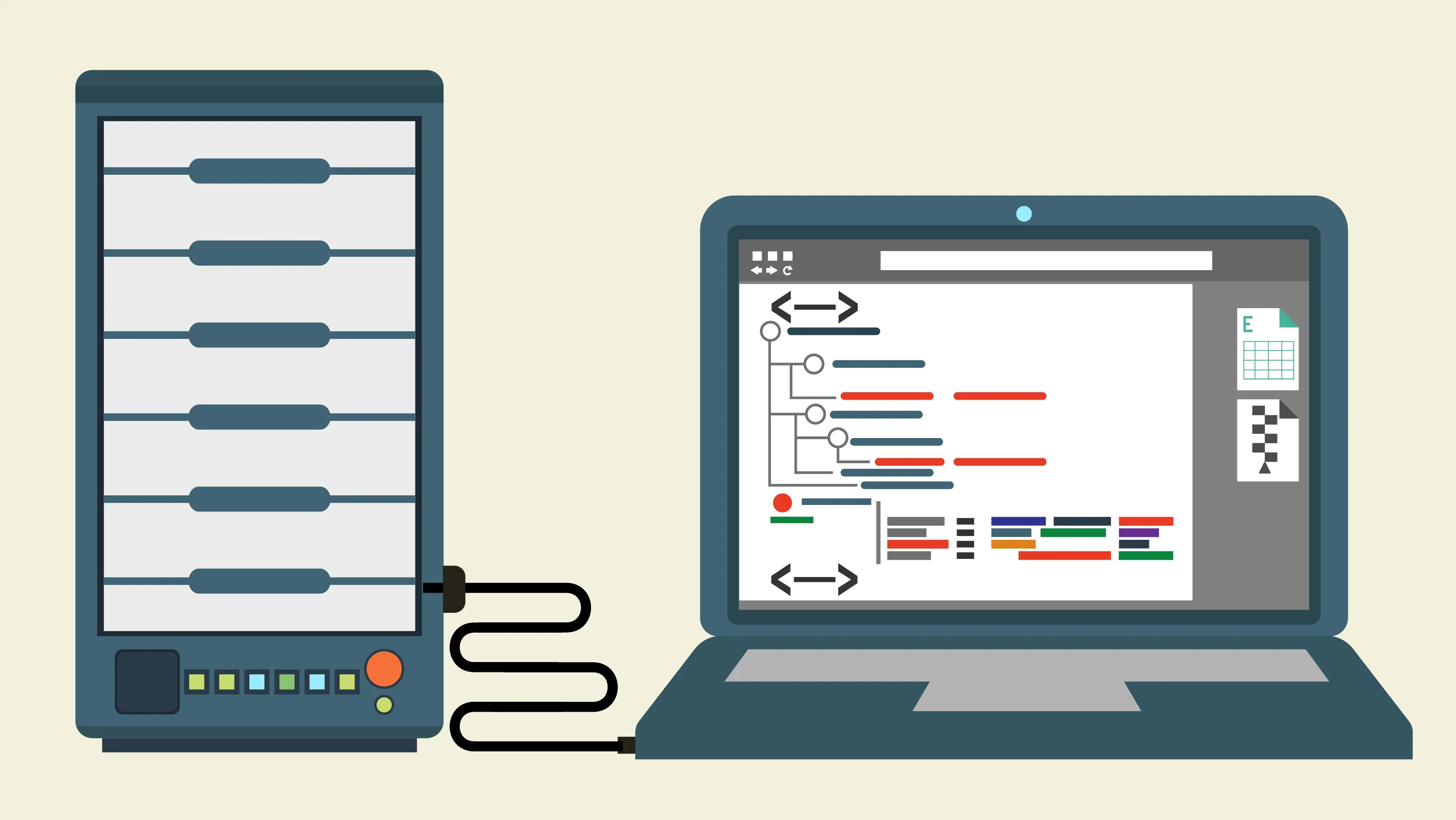
Which One is Right for Your Business?
When it comes to choosing the right type of hosting for your business, there are a few key factors to consider. If you require more control over performance, customization options, scalability, and security then dedicated hosting may be the best choice for you.
With this type of service, you will have exclusive access to an entire server which can be beneficial if your website is large or receives substantial traffic. The most fundamental difference between shared and dedicated hosting is that with the former, you share the host's server with other websites, while your site runs on its own physical computer in the latter.
Shared hosting plans are typically less expensive, but their resources get used up more quickly than those of dedicated servers.
However it should be noted that dedicated hosting can be expensive since all costs associated with running and maintaining the server must be covered by the user.
Alternatively, shared hosting services provide lower pricing since resources from a single server are shared among multiple customers or websites. This allows for easy setup and installation as well as additional features such as domain registration or email accounts from many providers; however there may also be certain limitations in terms of performance compared to dedicated servers due to resource sharing amongst other sites on the same server. It is important to assess your individual needs before making any decisions about which type of hosting is most suitable for your business requirements so that you can make an informed decision about which option would work best for you.
In conclusion, making the right decision between Dedicated and Shared Hosting can be a difficult process. It is important to analyze your business needs and understand the differences between the two options- the amount of control you have with Dedicated Server vs. more cost-effectiveness of shared hosting.
Make sure to review available plans and pricing from various providers in order to find a fit that meets your budget restrictions as well as provides optimal security for your data. This way, you will be able to make an educated decision about which hosting option is best for you and your business.

Nadejda Milanova
An experienced Content creator in the field of Search Engine Optimization (SEO) and WordPress. A true proffesional with a Master's degree focused on journalism.
Read more by Nadejda Milanova

